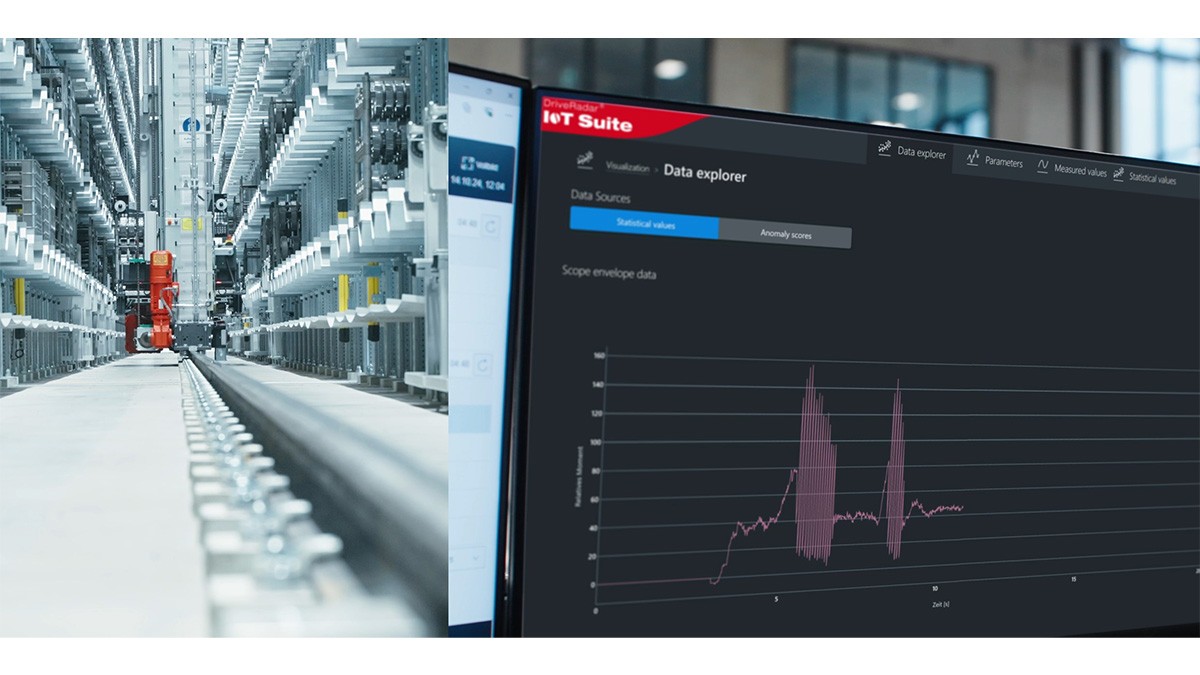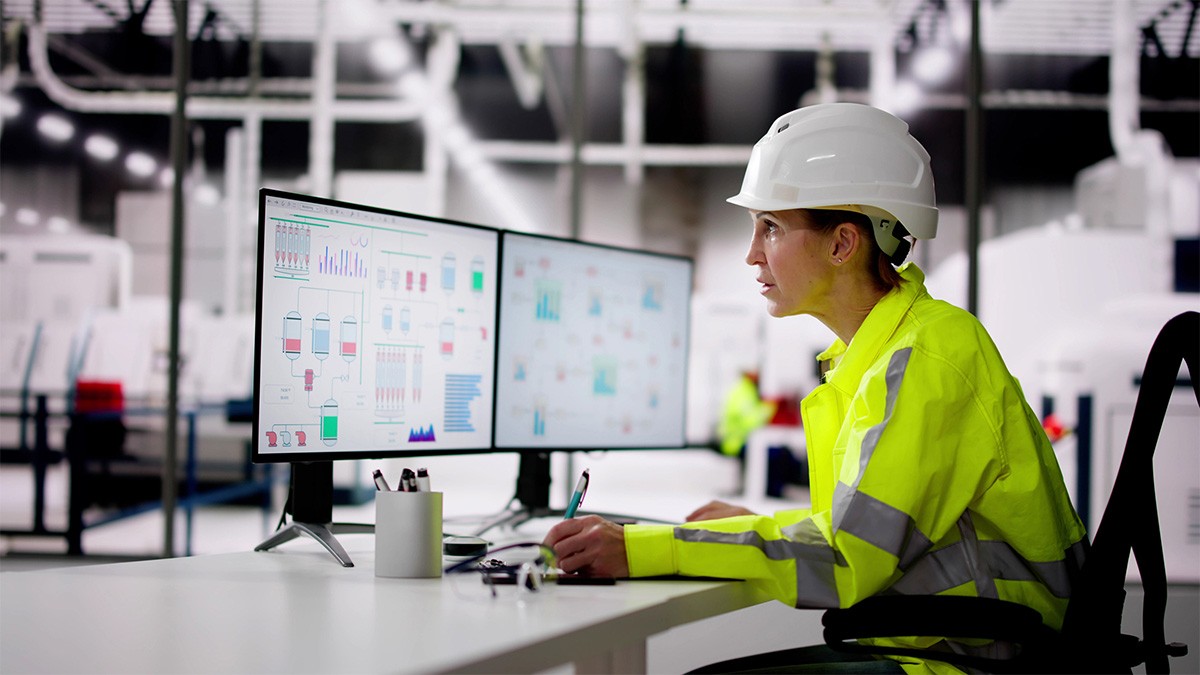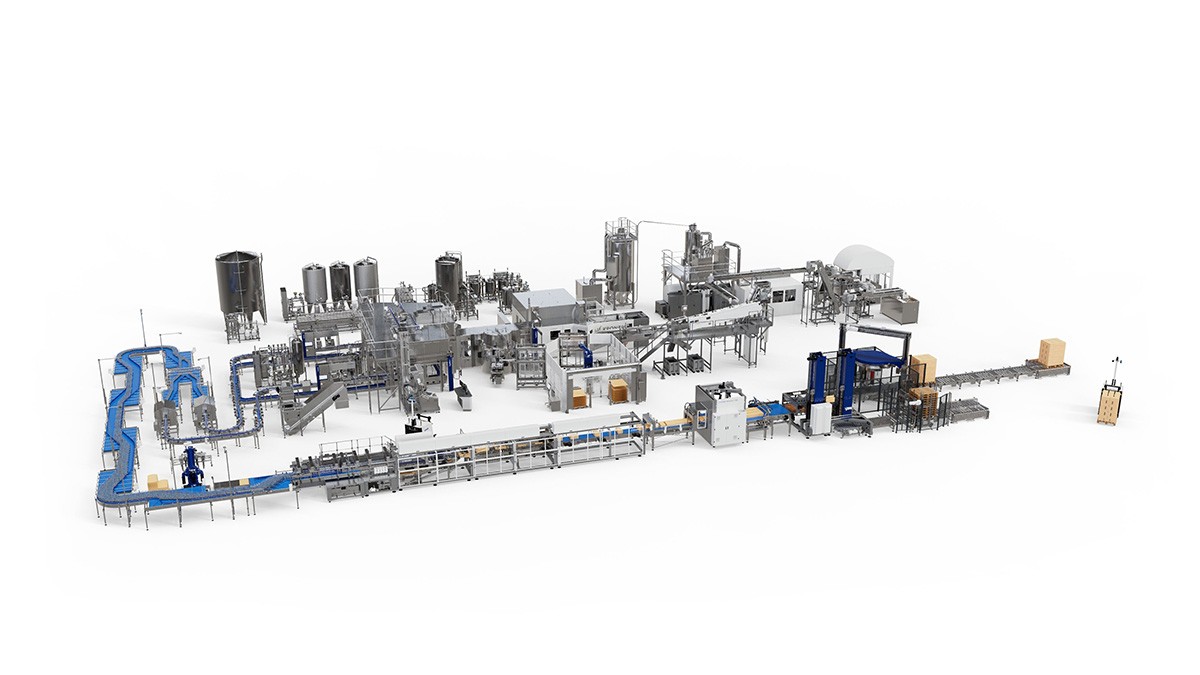The Road to Better Performance
More power, from the shop floor to the cloud
Almost 15 years have passed since the term Industry 4.0 was first discussed at Anuga FoodTec. The world of process automation has changed since then: Intelligent maintenance, flexible production and shorter development times are just some of the requirements that machines and systems in the food industry must meet today. Many of the concepts and solutions that are being implemented are based on the idea of Industry 4.0. They require up-to-date, comprehensive data from both production and IT – and this means that the amount of information processed in automation is constantly growing. At the same time, plant operators are under increasing pressure to extend the service life of their equipment, achieve even higher throughput and ensure even greater availability.
Big data and artificial intelligence (AI) are giving industry another boost. Intelligent software can be used to identify trends and patterns in the data sets, which help to make manufacturing more efficient and energy-saving. Continuous inline monitoring brings the machines to their optimum operating point. In this context, both process and discrete operations in the food industry can benefit from digitalisation. Krones demonstrates how this can work in practice with a data-based, fully automated line system for non-carbonated water in PET containers, known as the line of the future: Ingeniq. It provides answers to the most frequently asked customer questions and implements an Industry 4.0 vision: consistently low total operating costs with consistently high efficiency.
Line concepts for the future
The system consists of modular, standardised components that utilise robotics and artificial intelligence, while its sophisticated design significantly reduces the overall complexity of the plant layout. "With this line concept, we are go one step further and, together with the customer, actively take responsibility for performance throughout the entire life cycle – a real novelty," explains Markus Tischer, Member of the Executive Board of Krones AG, responsible for International Operations and Services.
Krones' new digital automation architecture makes it possible to network highly efficient individual machines in a line configuration and achieve the greatest possible level of automation. This ranges from in-house preform production and high-speed filling of non-carbonated water with the ErgoBloc L to autonomous material supply and sustainable packaging systems – always with a watchful eye on production. Plant operators can leverage the potential behind networking to increase plant performance, perform predictive maintenance and reduce costs.
Early warning system for critical plant components
With InsightPartner EvoHDry, GEA has also developed an Industry 4.0 solution that is specifically tailored to the requirements of dairies and beverage manufacturers. The system continuously monitors the condition of complex plants and supports predictive production. Predictive trends and clear recommendations for action enable operators to use the digital tool to plan maintenance in a targeted manner, prioritise critical issues and maintain stable operations. It was developed for environments in which uninterrupted operation is crucial, such as in the production of baby food, cream, condensed milk, milk powder or cheese. A gradual loss of suction pressure in vacuum pumps is one of the most common causes of unplanned downtime. It reduces the efficiency of evaporators, lowers production output and can force an emergency stop. Typical triggers are dry running, wear or lubricant loss. GEA InsightPartner EvoHDry uses predictive analytics to identify such patterns in good time and issue early warnings – with the goal of initiating maintenance measures before a shut-down occurs.
The technical design is geared towards both accuracy and safety. Sensors for vibration, flow and pressure record operating data, which is collected locally and pre-processed via an edge gateway. This enables rapid responses without having to rely on external networks. Data transmission to the GEA Cloud is encrypted, and connection to internal company networks is not necessary – a positive aspect in terms of cybersecurity.
The analysis of the data is based on proprietary algorithms from GEA. In addition, certified vibration experts check the results and supplement the automated evaluation with their technical expertise.

© SEW Eurodrive
Planned maintenance reduces costs
The concept of condition monitoring is also well advanced in industrial gearboxes. "Our digital solutions are the perfect complement to our mechanical products," says Tamiem Badawi, Head of Product Management for Industrial Gearboxes at SEW-Eurodrive. Badawi knows that digitalisation is always a key topic at Anuga FoodTec. Using practical examples from various industries, live demonstrations will be held at the Cologne Trade Fair Grounds to show how condition monitoring and predictive maintenance are taking the digital integration of the shop floor to a new level. In many customer meetings, the question arises: What solutions do you have for condition monitoring? With the DriveRadar IoT Suite, a combination of edge and cloud technologies, SEW-Eurodrive has created a platform that provides the desired transparency regardless of the application. "The goal of DriveRadar is to determine the condition of products, machines and systems using data collected during the operation of drive systems," explains Christian Keßler, Head of Corporate Solution Center – Electronics Digitalisation.
This gives food producers the opportunity to take proactive measures and avoid unplanned downtime. "In the past, for critical applications, gearboxes were designed to be very large so that they could safely withstand the loads involved. And when things got really critical, the customer would also keep a spare gearbox in stock," recalls Badawi. However, oversizing is not resource-efficient. Therefore, the desire for greater sustainability and efficiency is accompanied by a trend towards digital solutions. "In the case of industrial gearboxes, investments quickly run into the region of 50,000 or 100,000 euros. Automated monitoring is simply part of the process," emphasises Badawi. Sometimes it's just about little things. For example, if a customer wants to check in the morning whether their machine has been running successfully overnight, it can easily do so using its DriveRadar app.

© GEA / Getty Images
Conclusion
Production environments in the food industry are therefore becoming increasingly digital, and the operational effectiveness of plants is being optimised in many ways by the latest automation concepts. Improved machine parameters increase performance and quality, downtime and production costs are reduced, and maintenance teams work more efficiently thanks to digital tools. As a result, artificial intelligence and deep learning algorithms are likely to play an even more important role than before at the next Anuga FoodTec from 23 to 26 February 2027.
Further information
www.krones.com
www.gea.com
www.sew-eurodrive.com




